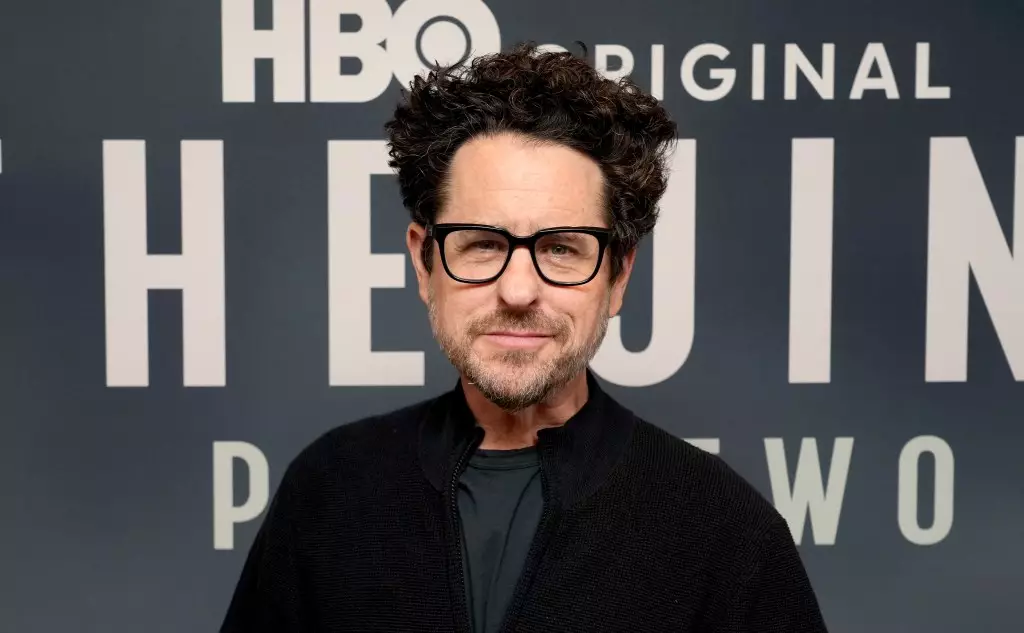The landscape of television and film is constantly evolving, particularly as it navigates the complexities of shifting viewer preferences, corporate mergers, and a post-pandemic world. At the center of this narrative stands J.J. Abrams and his acclaimed production company, Bad Robot, which is on the verge of extending its partnership with Warner Bros. Television. As the company approaches two decades in collaboration with one of Hollywood’s most iconic studios, the terms and implications of the new deal are worth a closer examination.
In the wake of the Warner Bros.-Discovery merger in April 2022, Bad Robot faced several challenges. Their existing five-year contract, signed during the peak of the industry’s deal-making frenzy in 2019, quickly met turbulence. A series of ambitious projects were halted, including the sci-fi drama “Demimonde,” which was pulled just before production was slated to commence. Abrams’ ventures, formerly basking in the glow of greenlights, now faced scrutiny from a newly formed regime looking to tighten budgets and streamline operations.
This period of difficulty was not isolated; multiple other ambitious projects from Bad Robot, such as the “Overlook” series—a spin-off from “The Shining”—and the highly awaited animated series “Batman: Caped Crusader,” were similarly shelved. The evolution from a shared vision, where ideas could flourish without restraint, to a cut-throat environment where only the fiscally viable survive, illustrates the changing dynamics of the television industry.
However, resilience has been a hallmark of Bad Robot, exhibiting an adaptability that is vital for survival in an ever-shifting landscape. In recent months, viewers have witnessed the debut of new series like *Presumed Innocent* on Apple TV+, which quickly emerged as the streamer’s breakout hit, earning a second season shortly after its limited run. Additionally, *Caped Crusader*, which found a home on Prime Video, has solidified Bad Robot’s reputation for producing engaging content—even in a market that has been recalibrating its expectations.
This resurgence is complemented by the release of several documentaries, including *Charlie Hustle & The Matter of Pete Rose* and *Elizabeth Taylor: The Lost Tapes*. These projects highlight Bad Robot’s commitment to diversifying its content offerings, which not only fulfill various audience needs but also cement the company’s status as a versatile force within the entertainment ecosystem.
Shifting Industry Landscape
The business of television is starkly different from what it was five years ago. The pre-pandemic era of limitless possibilities has since morphed into a time characterized by tightening budgets and critical reassessments of what constitutes a viable production. Significant deals that had once defined the industry landscape have been recalibrated or outright dismantled. As Bad Robot enters negotiations for its next contract, expectations surrounding its financial parameters have dramatically shifted. Analysts predict that the upcoming deal will likely reflect a more modest valuation than the prior $250 million agreement.
This shift is pivotal not only for Bad Robot but also for the broader industry. As mega-deals become less frequent, other production companies have pivoted to less expansive first-look agreements. This evolution signals the necessity for smaller, more sustainable projects that can thrive despite economic headwinds.
Looking Ahead: Upcoming Ventures
The horizon for Bad Robot remains bright, as they prepare to launch *Duster* on Max, demonstrating their ongoing commitment to multi-genre storytelling. Additionally, a *Speed Racer* series is in development, signifying Abrams’ desire to explore narratives that resonate with both nostalgia and contemporary audiences. Meanwhile, the company is working on various films, with *Flowervale Street* set for release in 2025.
The journey of J.J. Abrams and Bad Robot at Warner Bros. Television exemplifies the wider changes reverberating throughout the entertainment industry. Facing trials and tribulations, the production company is strategically positioning itself for future growth. The new deal—though unlikely to replicate past financial highs—provides a structured pathway to sustain its legacy while embracing the creativity that has defined its success for over two decades.


Leave a Reply